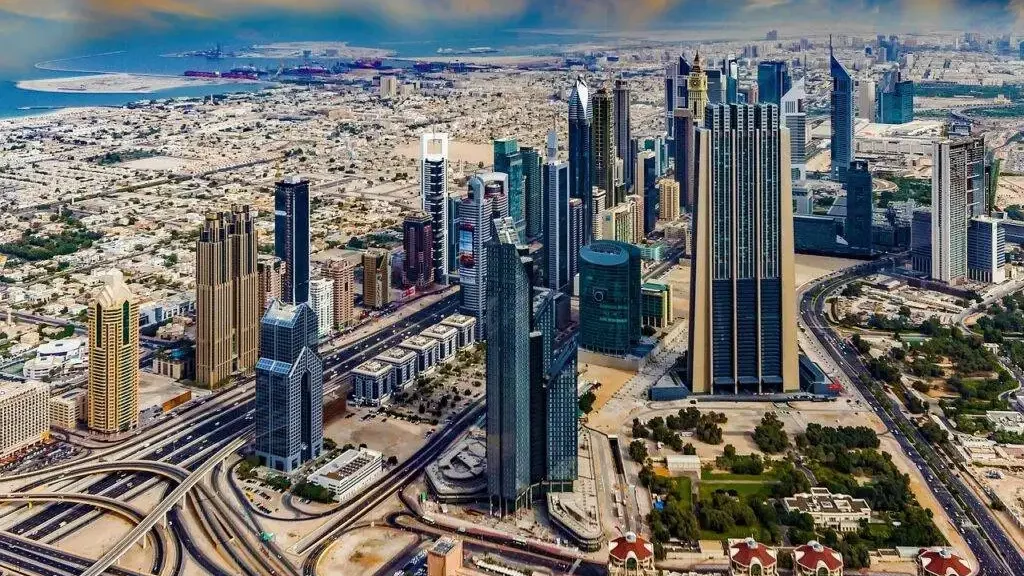Dubai and Abu Dhabi are two of the most iconic emirates in the United Arab Emirates (UAE), each boasting a unique identity and appeal. Often mentioned in the same breath, they are sometimes mistakenly regarded as the same. This article dives into the fascinating differences and similarities between Dubai and Abu Dhabi, shedding light on their distinct cultures, economies, and attractions.
Dubai: The Vibrant Metropolis
Dubai, often referred to as the “City of Gold,” is renowned for its modern skyline, luxury shopping, and bustling lifestyle. Known for its iconic landmarks such as the Burj Khalifa, the world’s tallest building, and the Palm Jumeirah, an artificial archipelago, Dubai has positioned itself as a global hub for tourism and business.
The emirate is famous for its extravagant shopping malls, high-end hotels, and vibrant nightlife, attracting millions of tourists each year. Its diverse population, with expatriates making up a significant portion of its residents, contributes to a cosmopolitan atmosphere that thrives on innovation and creativity. Events like the Dubai Shopping Festival and Expo 2020 (held in 2021) have further solidified Dubai’s reputation as a dynamic global city.

Abu Dhabi: The Cultural Heart
In contrast, Abu Dhabi, the capital of the UAE, is often seen as the more conservative and culturally rich emirate. Home to stunning attractions such as the Sheikh Zayed Grand Mosque and the Louvre Abu Dhabi, the emirate showcases a blend of tradition and modernity. Abu Dhabi places a strong emphasis on cultural heritage and education, investing heavily in museums, art galleries, and cultural festivals.
While Abu Dhabi may not have the same level of glitz and glamour as Dubai, it offers a unique charm with its serene beaches, lush gardens, and historical sites. The emirate is also known for its commitment to sustainability and innovation, with initiatives like Masdar City aimed at creating a sustainable urban environment.

Key Differences Between Dubai and Abu Dhabi
- Cultural Identity
- Dubai: Known for its modern lifestyle, Dubai embraces a multicultural environment where expatriates from around the world coexist. It is often associated with luxury, entertainment, and adventure.
- Abu Dhabi: More traditional, Abu Dhabi reflects the cultural heritage of the UAE. It offers a glimpse into Emirati history and traditions through its museums, festivals, and cultural events.
- Economic Focus
- Dubai: The economy is heavily reliant on tourism, real estate, and trade. The emirate has become a global business hub, attracting foreign investment and fostering entrepreneurship.
- Abu Dhabi: While also investing in tourism and real estate, Abu Dhabi’s economy is primarily driven by oil and gas. The emirate holds the majority of the UAE’s oil reserves and is actively diversifying its economy through initiatives like the Abu Dhabi Economic Vision 2030.
- Tourist Attractions
- Dubai: Offers a range of attractions from theme parks to luxury shopping malls. Must-visit sites include the Dubai Mall, Burj Khalifa, and Dubai Marina.
- Abu Dhabi: Focuses on cultural and historical sites, with highlights including the Sheikh Zayed Grand Mosque, Emirates Palace, and the newly opened Guggenheim Abu Dhabi.
- Lifestyle and Entertainment
- Dubai: Known for its vibrant nightlife, luxury events, and thrilling activities such as skydiving over the Palm Jumeirah and desert safaris.
- Abu Dhabi: While it also offers entertainment options, it tends to have a quieter nightlife scene, emphasizing cultural events, family-friendly activities, and outdoor spaces.
Similarities Between Dubai and Abu Dhabi
Despite their differences, Dubai and Abu Dhabi share several commonalities:
- Economic Growth: Both emirates have experienced rapid economic development and urbanization, transforming into modern cities with world-class infrastructure.
- Visionary Leadership: The leadership in both emirates is committed to sustainable development, innovation, and enhancing the quality of life for residents and visitors.
- Tourism Appeal: Both cities attract millions of tourists each year, offering a mix of luxury experiences, cultural attractions, and adventure activities.
- Safety and Security: Both Dubai and Abu Dhabi are known for their low crime rates, making them some of the safest cities in the world for residents and tourists alike.
Conclusion
Dubai and Abu Dhabi, while often grouped together, offer distinct experiences that cater to different tastes and preferences. Whether you’re drawn to the bustling lifestyle of Dubai or the cultural richness of Abu Dhabi, both emirates are integral to the UAE’s identity. Understanding the differences and similarities can enhance your experience, whether you’re planning a visit, considering a move, or exploring business opportunities in these remarkable cities.
As the UAE continues to evolve and innovate, both Dubai and Abu Dhabi will remain at the forefront of cultural and economic development in the region, making them essential destinations for travelers and expatriates alike.
Click here to check UAE STORIES website .
Do follow UAE STORIES instagram .







![]Sandeep Singh Sandeep Singh](https://uaestories.com/wp-content/uploads/elementor/thumbs/WhatsApp-Image-2026-02-07-at-6.39.12-PM-rj1cuvzmyrxxd4z1mh38s0n49f1ar1t0opbvs331rs.jpeg)





